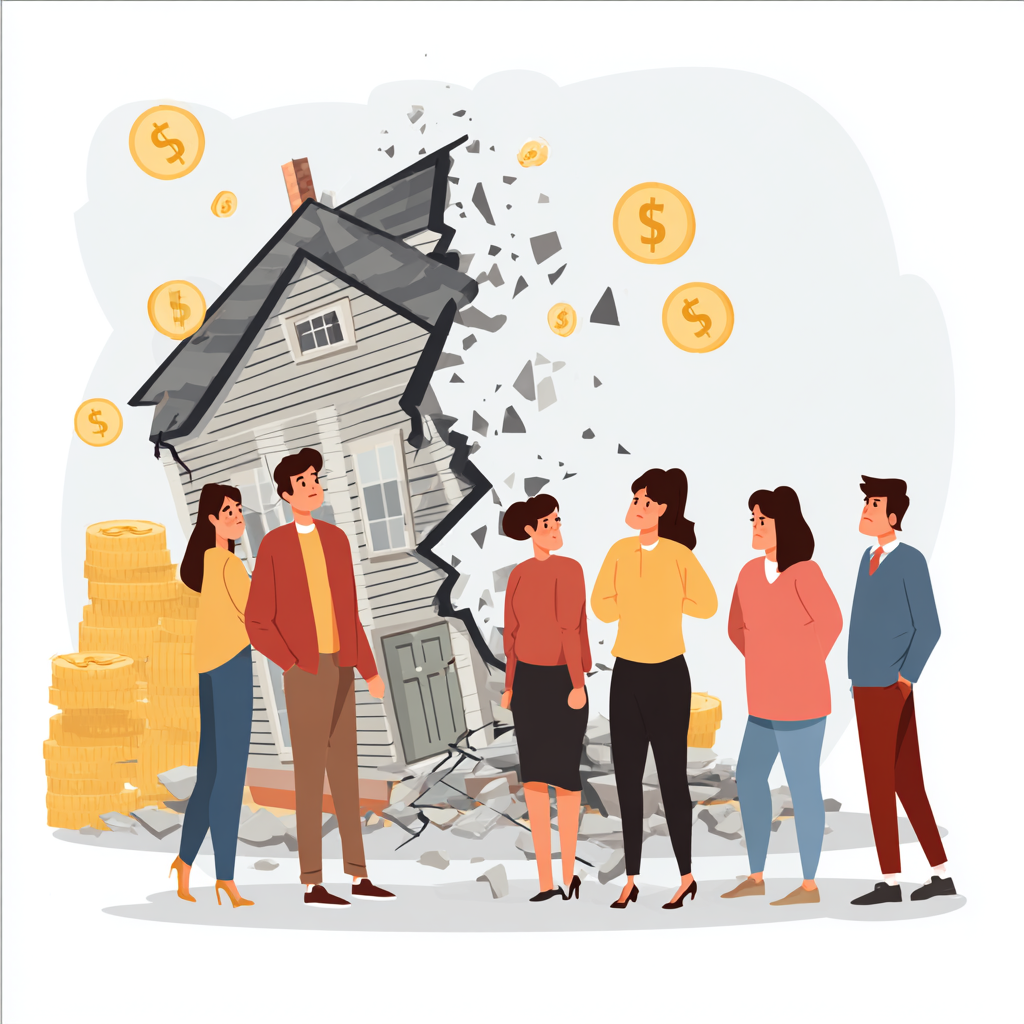Understanding Tariff Impacts | How Property Managers Can Control Rising Maintenance Costs
Rising tariffs on imported goods are creating new challenges for property managers across the United States. From construction materials to appliances, these trade policies are driving up costs and affecting maintenance budgets. Learn how to identify tariff-vulnerable expenses, implement strategic purchasing practices, and manage expenses to protect your property's bottom line during times of trade uncertainty.
How Tariffs Are Increasing Property Management Costs
Recent tariffs on imported goods have created ripple effects throughout the property management industry. These trade policies directly impact the cost of maintaining and upgrading rental properties in several key areas:
Construction Materials and Building Supplies
Building materials represent one of the most significant tariff-vulnerable expense categories for property managers:
- Steel and aluminum tariffs have increased costs for structural components, fixtures, and HVAC systems
- Lumber and other wood product prices fluctuate based on both domestic availability and international trade policies
- Plumbing supplies, electrical components, and fasteners often rely on global supply chains affected by tariffs
When these materials increase in price, even routine maintenance becomes more expensive, while larger renovations may require budget reassessments.
Appliances and Fixtures
Rental properties require regular appliance replacements and fixture updates, areas significantly impacted by tariffs:
- Refrigerators, washers, dryers, and other major appliances often contain components from multiple countries subject to tariffs
- Light fixtures, plumbing fixtures, and hardware frequently come from international manufacturers
- Smart home technologies and electronic components rely heavily on global supply chains
These essential items represent unavoidable expenses for property managers, making tariff-driven price increases particularly challenging to absorb.
Maintenance Equipment and Tools
The tools and equipment used by maintenance staff also face tariff impacts:
- Power tools and specialized equipment frequently come from international manufacturers
- Replacement parts and consumables may see price increases
- Maintenance vehicles and related equipment contain components subject to tariffs
These increased costs affect both in-house maintenance operations and contractor pricing for outsourced work.
Measuring the Financial Impact on Property Management
To understand how tariffs affect the bottom line, property managers should examine several key financial metrics:
Maintenance Cost Per Unit
This fundamental metric helps quantify tariff impacts:
- Track the average maintenance cost per unit over time
- Compare pre-tariff maintenance expenses to current costs
- Analyze whether cost increases correlate with tariff implementation dates
By establishing this baseline, managers can better demonstrate the direct financial impact of tariffs on operations.
Replacement Cycle Costs
Tariffs significantly affect items with regular replacement cycles:
- Appliance replacement costs may increase 10-15% due to tariffs
- Flooring, fixtures, and other turnover items face similar increases
- HVAC and major system replacements may require budget adjustments
These predictable expenses become less predictable when tariff policies change, requiring more frequent budget reassessments.
Capital Improvement ROI
For larger renovation projects and capital improvements, tariffs can alter return-on-investment calculations:
- Material cost increases may extend payback periods
- Project scopes might need adjustment to maintain feasibility
- Value-add strategies may require reconsideration based on new cost structures
Property managers need to regularly revisit these calculations as tariff policies evolve.
Strategic Approaches to Managing Tariff-Related Costs
While tariffs create significant challenges, proactive property managers can implement several strategies to mitigate their impact:
1. Inventory Management and Strategic Purchasing
Rethinking purchasing practices can help control tariff-related expenses:
- Bulk purchasing of frequently used items provides cost stability and volume discounts
- Extending inventory for tariff-vulnerable items during favorable pricing periods
- Developing relationships with multiple suppliers to ensure competitive pricing
- Exploring domestic alternatives when available
These approaches require more active inventory management but can substantially reduce the impact of tariff-driven price increases.
2. Value Engineering and Material Substitution
When prices rise for certain materials, alternative approaches may provide savings:
- Exploring alternative materials with similar performance characteristics
- Consulting with contractors about cost-effective substitutions
- Prioritizing domestic products where price competitive
- Replacing single expensive solutions with multi-component alternatives
This approach requires more planning but often yields significant savings while maintaining quality.
3. Preventative Maintenance to Extend Asset Life
With replacement costs rising, extending the useful life of existing assets becomes increasingly valuable:
- Implementing more rigorous preventative maintenance schedules
- Training maintenance staff on techniques to extend equipment life
- Prioritizing repairs over replacements when economically viable
- Documenting maintenance practices that successfully extend asset lifespans
These practices reduce the frequency of expensive replacements, mitigating the impact of tariff-driven price increases.
4. Contractor and Vendor Relationship Management
Strong relationships with service providers can help manage costs:
- Negotiating longer-term contracts to lock in pricing
- Developing partnerships with contractors who have efficient supply chains
- Exploring cooperative purchasing with other properties or management companies
- Requesting transparency about tariff impacts in vendor pricing
These relationships can provide both cost stability and early warnings about upcoming price changes.
Budgeting and Financial Planning for Tariff Uncertainty
Effective financial planning becomes even more critical during periods of tariff uncertainty:
1. Building Flexible Maintenance Budgets
Traditional budgeting approaches may need adjustment:
- Creating contingency funds specifically for tariff-related increases
- Developing tiered maintenance priorities to ensure essential work continues
- Implementing more frequent budget reviews as tariff policies evolve
- Building scenario-based budgets for different tariff outcomes
This flexibility allows property managers to respond to changing conditions without disrupting essential operations.
2. Timing Capital Improvements Strategically
Larger projects may benefit from strategic timing:
- Scheduling major purchases during favorable pricing windows
- Accelerating certain renovations before announced tariffs take effect
- Delaying non-essential improvements during peak tariff impact periods
- Breaking larger projects into phases to distribute costs
This approach requires close attention to both trade policy developments and market conditions.
3. Adjusting Rental Strategies to Reflect Increased Costs
Property managers may need to adapt rental approaches:
- Gradually adjusting rents to reflect the actual increased costs of maintenance
- Considering longer lease terms to provide income stability during uncertain periods
- Implementing slight increases across the portfolio rather than larger adjustments for specific units
- Communicating transparently with tenants about cost pressures affecting the property
These adjustments help maintain profitability while remaining sensitive to market conditions.
Technology Solutions for Cost Management
Modern property management platforms and technologies offer powerful tools for navigating tariff challenges:
1. Maintenance Tracking and Analytics
Data-driven approaches help identify cost trends:
- Implementing systems that track maintenance costs by category
- Using analytics to identify which expenses show tariff-related increases
- Developing predictive models for future maintenance requirements
- Creating dashboards that highlight cost trends for management review
These insights enable more informed decisions about where to focus cost-control efforts.
2. Inventory and Purchasing Systems
Sophisticated inventory management helps optimize purchasing:
- Deploying systems that track usage patterns and optimal reorder points
- Implementing price monitoring for key supplies
- Utilizing purchasing platforms that identify the most cost-effective suppliers
- Developing automated alerts for price increases
These tools help property managers respond quickly to changing market conditions.
Conclusion
While tariffs present significant challenges for property managers, proactive strategies can substantially mitigate their impact. By understanding vulnerable expense categories, implementing strategic purchasing practices, extending asset lifespans, and developing flexible financial approaches, managers can maintain profitability despite trade uncertainties.
The most successful property managers will view tariff challenges as an opportunity to refine operations, strengthen vendor relationships, and implement more sophisticated cost management approaches. These improvements will benefit properties not only during current trade tensions but also through future economic fluctuations.
By combining practical operational strategies with thoughtful financial planning, property managers can navigate tariff impacts while continuing to provide quality housing and services to their residents. Rather than simply absorbing higher costs, forward-thinking managers will adapt and evolve their practices to thrive even in challenging trade environments. Make the smart choice for your properties today. Implement these strategies to protect your bottom line from rising tariff costs.
Related Blog Posts:
- Property Management Concerns During a Recession | Navigating Economic Downturns
- Optimize Rent Pricing: Techniques to Boost Profits
- Ancillary Revenue for Rental Properties | Additional Income Streams Property Management
Beagle is the #1 platform for property managers to launch profit-maximizing reinsurance and resident benefit programs that tenants love through our association.
Book a Demo Today







